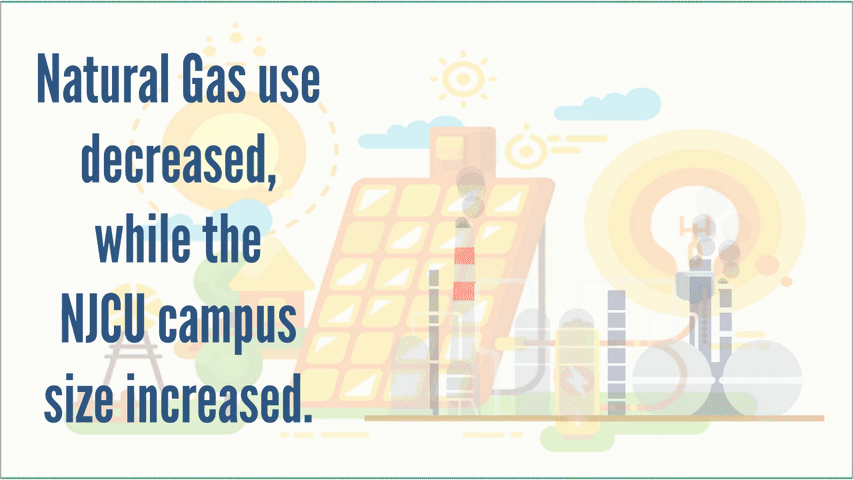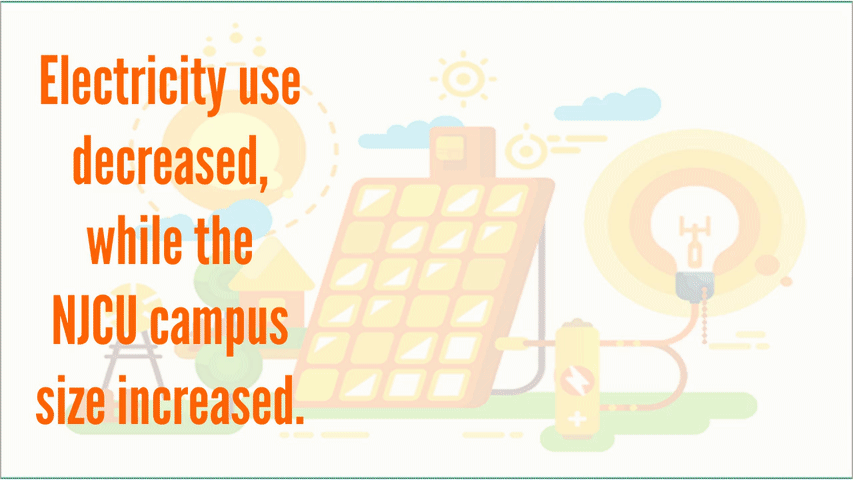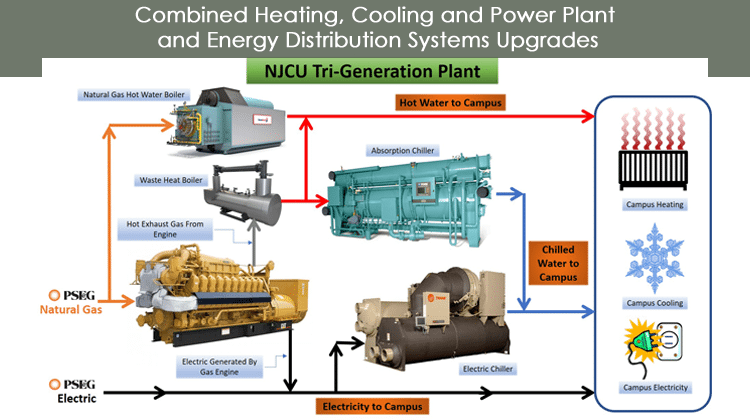Energy
NJCU has implemented the following several initiatives that have reduced the University’s energy footprint:
- Solar – NJCU has installed dusk to dawn solar-powered lighting on the outside of the Gilligan Student Union patio covering 19,000 sq. ft.
- LED Lighting – NJCU has been converting lighting to LED. All replacement bulbs are being ordered LED.
- Building Management System (BMS) – All campus buildings are connected to an Andover BMS that enables remote operation of the HVAC systems. The BMS has been used to implement energy efficiency controls measures such as scheduling, temperature reset and economizer control. Equipment are set to an “unoccupied energy-saving mode” for overnight and on holidays.
- Occupancy Sensors – Many classrooms and hallways contain occupancy or motion sensors for lighting.
- Computer Power-saving Mode – The majority of campus computers labs are scheduled to automatically enter a power saving mode each night.
- Exterior Lighting – Dusk to dawn lighting fixtures on campus are triggered on and off by the amount of light reaching the sensor, resulting in energy savings, longer life, and low maintenance.
- Reflective Roof – The Student Union and Rossey Hall buildings feature a reflective cap sheet roof that reflects solar radiation and disperses heat energy away from the buildings, keeping the interior cool.
On-going Efforts:
- Energy Efficiency – NJCU continues to reduce emissions by upgrading HVAC equipment and lighting, recommissioning equipment, and installing automated controls.
Combined Heating, Cooling and Power Plant and Energy Distribution Systems Upgrades
The scope of the project will include:
- The installation of electricity, hot water and chilled water equipment.
- The installation of new underground hot water and chilled water piping throughout the campus with possible expansion to Visual Arts Building and the John J. Moore Athletic Center.
- Upgrades to each of the buildings heating and cooling systems to accept the new utilities being delivered.
The project will consist of the following four (4) phases:
- Investment Grade Audit of NJCU’s Existing Systems
- Design and Construction of the new Tri-Generation Plant
- Replacement and Expansion of the Underground Utilities
- Modifications to the existing Buildings to Accept the new Utilities











